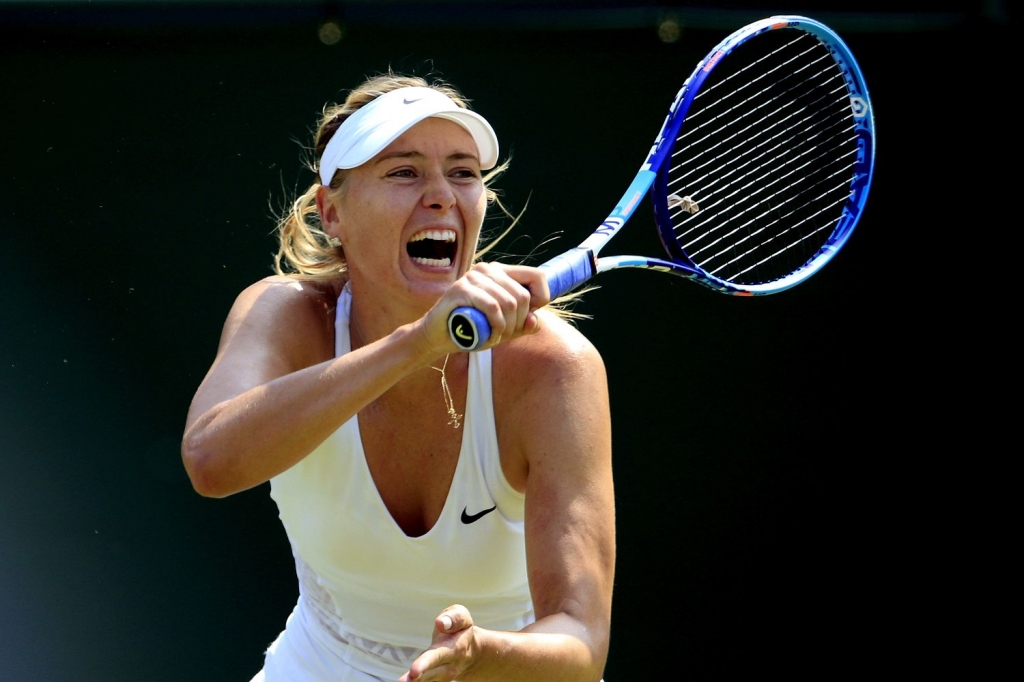-
Tips for becoming a good boxer - November 6, 2020
-
7 expert tips for making your hens night a memorable one - November 6, 2020
-
5 reasons to host your Christmas party on a cruise boat - November 6, 2020
-
What to do when you’re charged with a crime - November 6, 2020
-
Should you get one or multiple dogs? Here’s all you need to know - November 3, 2020
-
A Guide: How to Build Your Very Own Magic Mirror - February 14, 2019
-
Our Top Inspirational Baseball Stars - November 24, 2018
-
Five Tech Tools That Will Help You Turn Your Blog into a Business - November 24, 2018
-
How to Indulge on Vacation without Expanding Your Waist - November 9, 2018
-
5 Strategies for Businesses to Appeal to Today’s Increasingly Mobile-Crazed Customers - November 9, 2018
Maria Sharapova suspended for 2 years for failed drug test
The five-time Grand Slam tennis champion was suspended from the sport earlier this year (16) after testing positive for the drug Meldonium, which had recently been banned, at the Australian Open tournament.
Advertisement
Sharapova tested positive for the controversial banned medication meldonium during January’s Australian Open. Sharapova – whose case was heard by a three-person tribunal on May 18 and 19 – immediately said on her Facebook page she would appeal to the Court of Arbitration for Sport, which will have the final say on the matter.
“Today with their decision of a two-year suspension, the ITF tribunal unanimously concluded that what I did was not intentional, ” Sharapova said.
“The ITF spent tremendous amounts of time and resources trying to prove I intentionally violated the anti-doping rules and the tribunal concluded I did not”, she wrote, noting she did not seek treatment from her doctor to obtain a performance enhancing substance.
“An Independent Tribunal appointed under Article 8.1 of the 2016 Tennis Anti-Doping Programme (the “Programme”) has found that Maria Sharapova committed an Anti-Doping Rule Violation under Article 2.1 of the Programme and as a effect has disqualified the affected results and imposed a period of ineligibility of two years, commencing on 26 January 2016″, said a statement on the ITF website.
Meldonium was added to the World Anti-Doping Agency’s (WADA) list of banned substances at the start of the year after evidence that it boosted blood flow and enhanced athletic performance.
The ITF had sought a four-year suspension but the tribunal rejected that, she said.
Sharapova admitted to the charge, but subsequently, requested a hearing before an Independent Tribunal in accordance with Article 8 of the Programme to determine the outcome that would result from her violation. “In this case, Maria has taken responsibility for her mistake from the outset”.
The sportswear giant said in a statement Wednesday: “We hope to see Maria back on court”.
In March, when Sharapova announced she failed a drug test, Nike said it had “decided to suspend our relationship with Maria while the investigation continues” but that it would “monitor the situation”. The panel said various elements of Sharapova’s case “inevitably lead to the conclusion” that she took the substance “for the objective of enhancing her performance”. It blocks cells from taking in fatty acids and allows them to use carbohydrates instead.
“She was the sole author of her own misfortune”, it said. “This use of Mildronate by Ms. Sharapova was not known to any of Ms. Sharapova’s team, except for her father and, from 2013, Mr. Eisenbud himself”.
Questioning why she continued taking Mildronate before matches, the report said: “In the tribunal’s view the answer is clear”.
Advertisement
The report, however, said: “There is nothing unfair in the rules being fairly and equitably applied to this player as to any other athlete subject to the WADA Code, whether professional or amateur”.




























